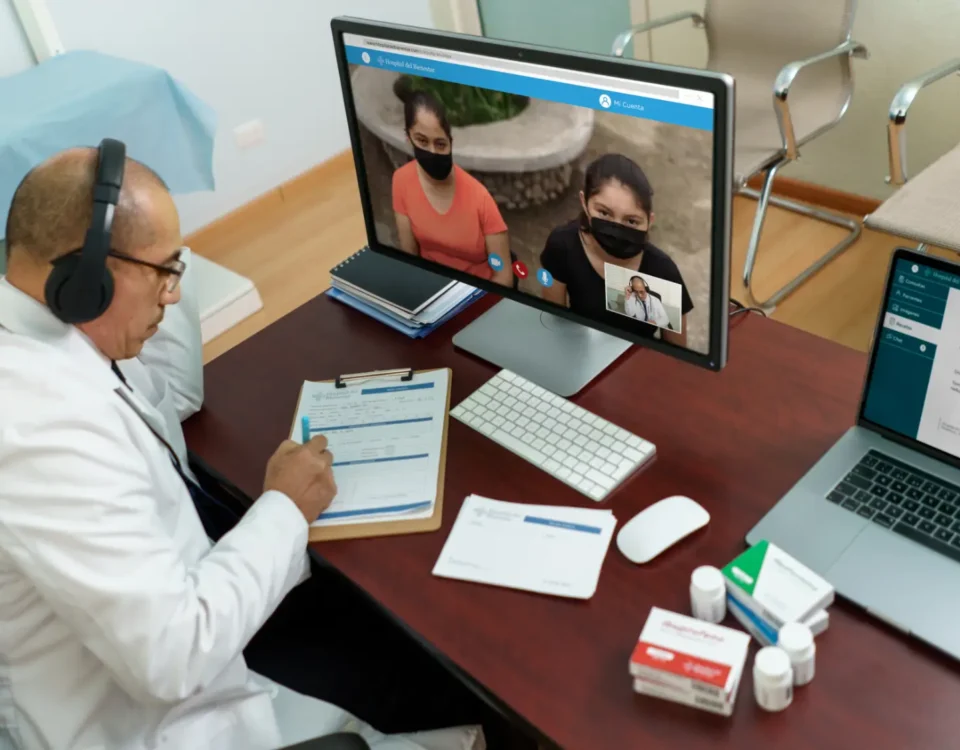
New Frontier Group Celebrates 20th Anniversary
April 13, 2022
Always There, Global Rx Care
July 27, 2022The IPMI industry offers policyholders a way to access the US healthcare system. The most successful IPMI insurers have strategies and strategic partnerships which allow people to access quality care at the lowest expenditure. To achieve this, leading IPMI insurers leverage a variety of techniques to tackle the rising costs of healthcare, the financial impact of chronic diseases, and the cost of technology.
This article reviews the top five strategies and techniques used by leading IPMI insurers to ensure the best coverage at the lowest price.
Strategy 1: Contracted Rates with Centers of Excellence
Negotiating reduced rates with healthcare providers at US Centers of Excellence is an important strategy for IPMI insurers, but it comes with its own set of challenges.
Mergers and acquisitions within the US healthcare system make it difficult for IPMI insurers to maintain relationships with hospitals. Turnover in hospital executive and administrative employees can increase the time needed to manage relationships with staff and ensure the understanding of specific IPMI cases. However, there are resolutions to these challenges. US based IPMI partners who have long-standing relationships with US hospital providers are an important part of the value chain. In the complex US environment, hospitals are continuously seeking to differentiate themselves by establishing niche programs focused on areas of medicine and delivering world class care in specific areas. By having provider relations partners in the US, IPMI insurers can stay updated on which providers specialize in what and the partner can assure access for the policyholder.
Strategy 2: Proactive Case Management
When it comes to cost control, proactive case management and medical triage can help.
While challenging, IPMI insurers or their designated partners must keep strong working relationships with the financial teams in US based healthcare centers to stay on top of the costs. It is also important that they work directly with a CMO lead clinical team to stay updated on critical details which affect price, such as when patients can be transferred. This makes it important for IPMI providers to have an experienced and knowledgeable advisory team who understand the ins and outs of the US healthcare system. An advisory team can work closely with US centers of excellence to understand levels of adequate care that ensure the best outcomes at the lowest price. For IPMI providers, having US based partners who understand a patient’s transition from their home country to the US for care, and back to their home country is crucial to overcoming these challenges. Overall, US based partners are valuable to IPMI insurers as they serve as important advocates that can minimize any readmission needs and make sure the patient intimately understands follow up care.
Strategy 3: Telehealth
The latest strategy IPMI providers have implemented is telehealth services. Offering virtual care which crosses borders allows diagnosis and pre-surgical treatment through video consultation at a lower cost.
With numerous telehealth options today, getting everyone to understand that telehealth needs to be incorporated to lower costs is challenging. In addition, the logistics of telehealth in the US and across borders with physician licensing proves to be even more difficult for IPMI providers. There is a solution though, and that is building niche telehealth partnerships with companies that have been created specifically for global care. These companies can manage transitions of patients moving from their home country to the US and back to their home country. Standard US based telehealth companies do not often have the capacity to customize programs for IPMI needs. Therefore, the key to success for IPMI insurers is finding specialized telehealth companies for the IPMI industry.
Strategy 4: Fraud, Waste, and Abuse (FWA) Prevention Plan
Another cornerstone strategy of IPMI insurers is provider fraud, waste, and abuse prevention (FWA). Without a solid FWA mitigation strategy, there is likely to be an increased cost for both the insurer and its members. In addition, US hospitals can charge full price and there can also be upcoding and wasteful or administrative errors providers can make. In fact, according to the medical billing advocate group, Resolve, 80% of US medical bills are found to have some type of financial or administrative error, regardless of intention. This makes a provider fraud, waste, and abuse prevention strategy crucial to IPMI insurers. Mitigation can start by having a known logo on an ID card, and a partner who supports claims review to be sure that there are no errors prior to paying a bill. Managing FWA goes hand in hand with the previous strategy discussed of managing relationships at centers of excellence and managing cases as they are occurring. Overall, having a US partner that is working directly with the hospital and analyzing bills for accuracy and performing audits is an important part of managing fraudulent or unintentionally wasteful billings.
Strategy 5: Customized Rx Program
Lastly, IPMI insurers need to have a solid strategy when it comes to pharmacy management, as US based care for IPMI policy holders frequently results in a need for medication. US pharmacy management being used for anything outside of standard US care is tricky and comes with its own set of challenges. Prescription medication from the United States cannot easily be mailed to someone in a foreign country, but many IPMI cases require follow up medication and care as the patient travels back to their home country. Most importantly, patients generally don’t have the bandwidth and support necessary to manage the confusing Rx process in the US after their procedure. However, IPMI insurers can work with a trusted partner who has a concierge pharmacy service to handle everything on an IPMI patient’s behalf. In addition, having a partner like this can ensure a patient understands the medication adherence, which is an important part of their recovery process. Concierge solutions should also include international Rx knowledge, meaning that they should consider the ever-changing regulations on shipping US medications overseas and should ensure everything is taken care of for a patient traveling from the US back to their home country after a procedure. The resolution is for IPMI insurers to work with a US partner that specializes in global pharmacy solutions and can guarantee the delivery of the medications, even outside of the USA.
Summary:
There are many things IPMI vendors can do to deliver the most advanced care at the most competitive price and working together with partners who specialize in advancing these core strategies can ease the administrative burden and expedite bottom line results for IPMI carriers.





